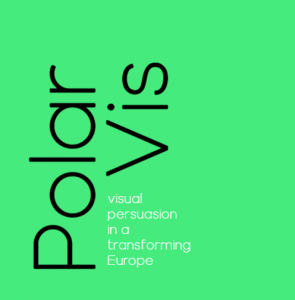
A little bit of news. CHANSE, the Collaboration of Humanities and Social Sciences in Europe recently funded a project proposal we submitted in collaboration with Uppsala University, University of Copenhagen, Hungarian Academy of Sciences Centre of Excellence – Social Sciences and the University of Vienna.
The project, named PolarVis, examines the role of visual content in processes of political polarization and belonging in the digital age. With visual content increasingly underpinning both conflict and connection, photos, videos, and memes offer a powerful form of political communication. Political actors use them to frame issues, mobilise support, and build (or undermine) legitimacy, and citizens and platforms play a part by modifying, sharing and amplifying them. PolarVis aims at combining in-depth qualitative approaches, network analysis, and computational text and image analysis methods to understand how, why, and with what consequences visual content becomes a mechanism of polarization and belonging in Europe. We’ll focus on the intergenerational issue of climate change and green transition, and address four key questions: (1) How do movements use visual content in their communication? (2) What are the characteristics of this visual content and how does it form visual narratives? (3) How do online audiences react to the visual content? (4) How does this content spread online, and allow like-minded or opposed groups to emerge?
While the results will come later :-D, it is now time to hire a PhD student to work on the project. ITU has a call out of a PhD in Computational Communication to be located between the newly formed Human Centered Data Science group and the NERDS group. The ideal candidate will be interested in online social phenomena and have experience working with digital data and network analysis. The project will start in October, thus the ideal starting date for the PhD position is October or soon thereafter.
Please apply or share to those who might be interested.